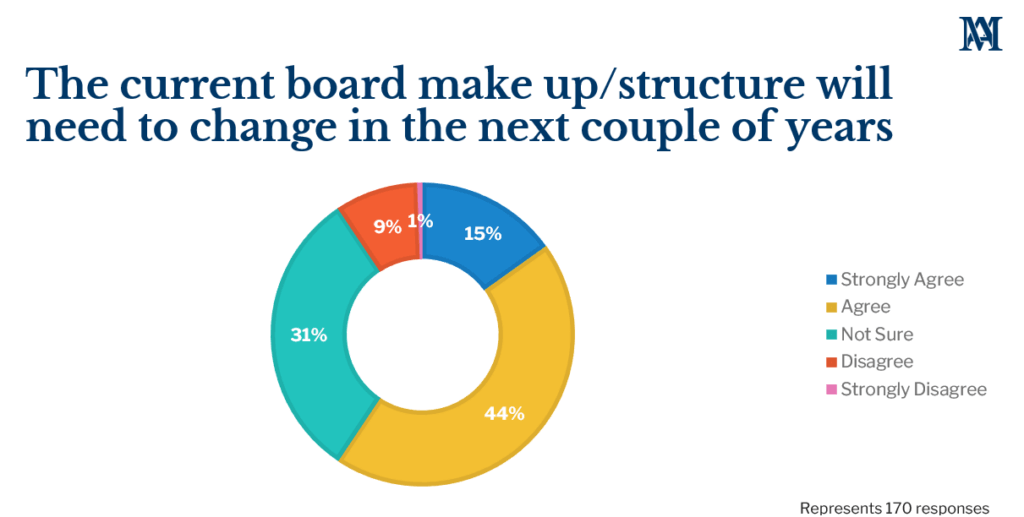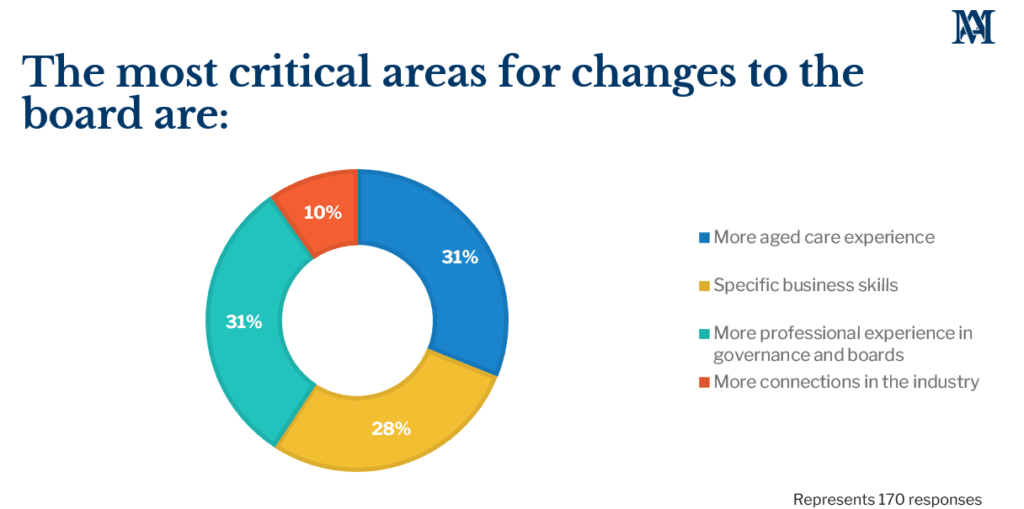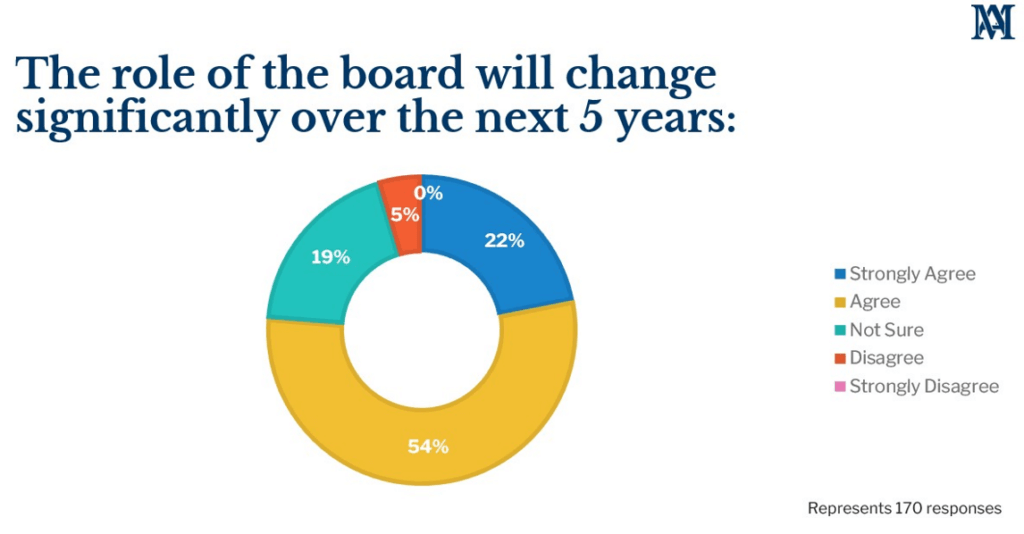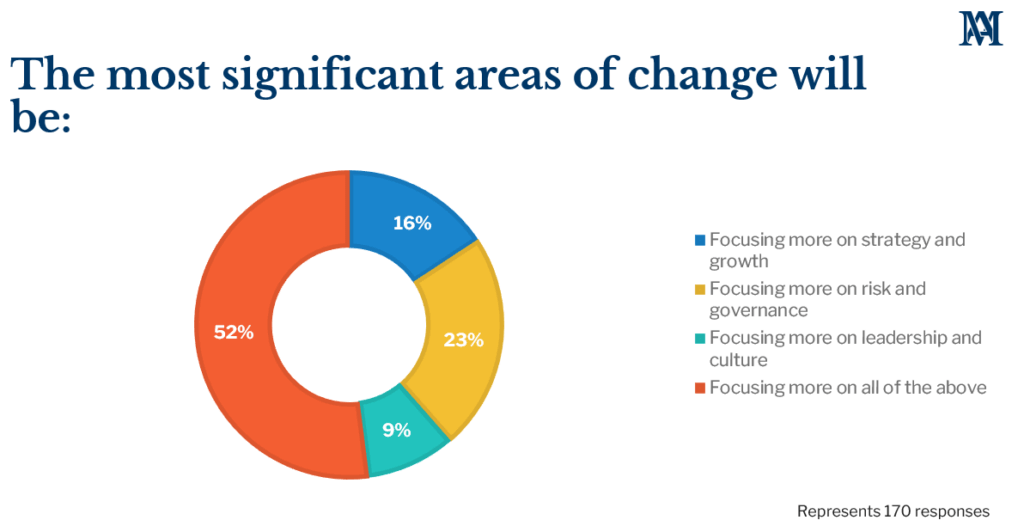A glimpse into the future of aged care Board structures
April 10, 2024 | Provider Perspectives

By Susan Howarth, Head of Marketing
As part of our ongoing commitment to leading with data and insights on aged care industry trends, we recently conducted a poll of 170 leaders across 119 aged care providers to gather insights into their views on the role and structure of their Boards. The findings shed light on the anticipated changes and priorities shaping the future of aged care governance. Here’s what they told us.
Current assessment of Board composition and function
While a significant proportion of respondents, 59%, acknowledged the need for potential adjustments to their current Board structures, 31% expressed uncertainty, signalling a recognition of the complexities involved in governance decisions.

Critical areas identified for Board evolution
Among the areas highlighted for potential change, respondents identified several critical aspects deemed essential for enhancing Board effectiveness. Thirty one percent underscored the importance of incorporating more aged care experience into their Board makeup. This emphasis reflects the industry’s recognition of the invaluable insights that those with long-standing careers in the sector bring to strategic decision-making processes.

Twenty-eight per cent of respondents emphasised the need for specific business skills among Board members, highlighting the importance of a diverse skill set to navigate the multifaceted challenges of the aged care sector. Additionally, 31% stressed the significance of professional experience in governance and boards, highlighting the important role of robust governance practices in ensuring organisational resilience and integrity.
Anticipated role transformation of aged care Boards
Looking ahead, there is a sense of anticipation regarding the evolving role of aged care Boards in the next five years. A significant majority, 76%, expressed agreement that the role of their Boards will undergo significant transformation, reflecting a readiness to embrace evolving responsibilities and priorities in response to changing industry dynamics.

Anticipated areas of significant change
When asked about the most significant areas of change anticipated for their Boards, respondents articulated diverse priorities reflective of the multifaceted nature of aged care governance. Nearly a quarter, 23%, highlighted the imperative for Boards to focus more on risk and governance, acknowledging the heightened regulatory scrutiny and risk landscape facing the sector.
Similarly, 16% emphasised the importance of prioritising strategic planning and growth initiatives, recognising the need for proactive approaches to navigate market uncertainties and seize emerging opportunities. Nine percent acknowledge the role of leadership and culture in driving organisational success.
Notably, more than half, 52% expressed the belief that Boards should focus more comprehensively on all the aforementioned areas, reflecting a comprehensive approach to governance and strategic leadership in aged care organisations.

As aged care providers chart a course toward a future characterised by unprecedented challenges and opportunities, it is imperative for Boards to be innovative and agile so that aged care providers can position themselves to navigate the complexities of the industry landscape effectively and deliver optimal outcomes for their stakeholders.
If you would like to explore a conversation on strategy for your aged care organisation, get in touch.
Make sure to register for our 17th April webinar, which will further unpack these findings and discuss what the future of the aged care board will look like going into 2030.


